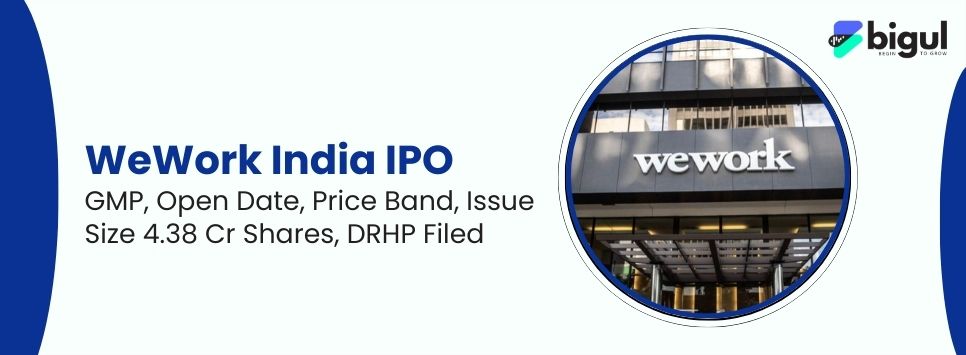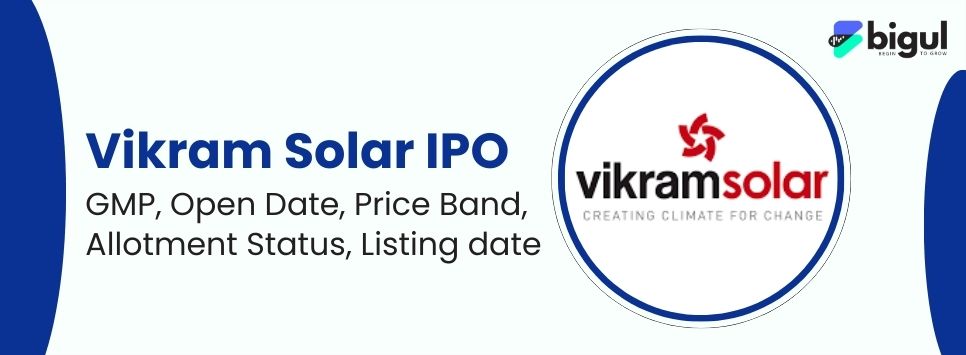Demat A/C Opening Online
Overview
In recent years, there has been a tremendous rise in stock market trading and investments as people are interested in outperforming other investment options and growing their wealth over time more than ever. For this very reason, the Securities and Exchange Board of India (SEBI) has made a lot of efforts to oversee the Indian securities market to convert investing from a physical to a digital process, which has made buying and selling of shares easy and quick like a laptop or a mobile device. However, many are still unfamiliar with the investing process, making it challenging for new investors to get to the point of investing. The first step towards initiating the process is opening a Demat A/c.
Since there has also been a drastic change in saving habits and preferences, more people are shifting from conventional fixed deposits towards new options like stocks and shares, which has led to a massive increase in the number of Demat accounts. Furthermore, opening a Demat account has recently become increasingly popular, with around 10M+ accounts opened in the year 2021 alone, signaling the increased popularity of these accounts. Read further to learn about Demat A/c, its purpose, types of Demat accounts, eligibility criteria, and, most importantly, how to open a Demat account.
What is a Demat A/c? How does it work?
In the past, dealing in securities involved transferring actual certificates of the securities. However, the Securities and Exchange Board of India (SEBI) revolutionised the entire process by introducing Demat accounts in the nation in 1996 through the dematerialisation of shares, transforming it into a digital one. Dematerialisation, or “Demat,” is the abbreviation for the process of converting physical securities into electronic form. It facilitated the digitalisation of the Indian stock exchange and improved SEBI oversight.
Such Demat accounts are regulated by two depositories in India, namely National Securities Depository Limited (NSDL) & Central Depository Services Limited (CDSL). These depositories undertake Demat account registration and maintenance through several Depository Participants (DPs), such as banks/financial institutions and stock brokers, who provide their clients with Demat and Trading Accounts. Every trader or investor must hold a Demat account to buy/sell to be credited to or debited from their Demat account in T+2 days. Similar to a bank account, each investor obtains a unique 16-digit numerical code or number when opening a Demat account, which acts as a unique proof of identification while dealing in the stock market. Further, it serves as a venue for managing your funds online and shows your credits, debits, balances, and transaction history. There is no minimum holding requirement to keep the account open, and it can be kept open for the duration of ownership.
Accordingly, a Demat Account or Dematerialised Account allows you to hold shares and assets in an electronic format. Stocks, E-gold, bonds, government securities, initial public offerings (IPOs), exchange-traded funds, non-convertible debentures, and mutual funds traded, bonds, government securities, initial public offerings (IPOs), exchange-traded funds, non-convertible debentures, and mutual funds listed on stock exchanges, etc. are some of the securities which could be purchased and kept in a Demat Account during online trading to make it easier for consumers to transact.
What are the various types of Demat A/c?
Here are different types of Demat accounts-
1. Regular Demat Account
Regular Demat accounts are conventional traders/investors who are a citizen of India and wish to undertake trading/investing activities in a simpler & convenient manner. Generally, the charges levied on a regular Demat account on various factors such as the category of securities held, volume of trade, and terms & conditions specified by the depository and the depository participant (DP). If a normal Demat account holder wishes to transfer a joint Demat account, he or she must register a new account with the same name.
2. Repatriable Account
A repatriable Demat account is beneficial for those NRIs who intend to invest or trade in the Indian share market from any place in the world. It allows NRIs to transfer their funds to several foreign countries, but NRIs intending to hold a repatriable Demat account will also be required to hold a Non-Resident External (NRE) or a Non-Resident Ordinary (NRO) account. Additionally, a Non-Resident Indian (NRI) must comply with all the Foreign Exchange Management Act’s (FEMA) regulations to open a repatriable Demat account.
3. Non-Repatriable Demat Account
Like a repatriable Demat account, non-repatriable accounts are applicable for NRIs and act as another alternative for NRIs to hold a Demat a/c with the limitation that funds under the non-Repatriable Demat account cannot be transferred abroad. But, the Demat account holder must link their NRO (Non-Resident Ordinary) savings accounts with the Demat account. NRIs who earlier held a regular Demat a/c could either opt to switch their account to non-Repatriable Demat accounts once they leave India after leaving India or could set up a new account from scratch.
4. BSDA
To encourage financial inclusion in the nation, the Securities and Exchange Board unveiled a brand-new form of Demat account called the basic Services Demat Account (BSDA). There is a small difference between the ordinary Demat account and the basic services Demat account in terms of maintenance charges.
How to open a Demat Account in India?
A Demat account can be opened by following this simple process as provided below-
- Locate a suitable DP and fill out the registration form
You must provide a DP that offers Demat services, such as a bank, financial institution, or brokerage, with your basic information, i.e., your name, mobile number, email address, date of birth, etc., to begin the process.
- Submit the KYC data.
Following that, you must complete KYC verification procedures by submitting a scanned copy of necessary documents such as your PAN card, proof of identity, and proof of address. Additionally, a canceled cheque and your bank account information must be submitted.
- Verification of Documents
After you have submitted your information, the stockbroker will review your application and verify the supporting documents to ensure that the information matches the documents submitted.
- Get your login ID
Once your application is approved and your account is properly opened, you will receive your login id and password to access your Demat & Trading a/c.
Benefits of opening a Demat A/c online
- Allows to hold various investments- Demat account allows investors/traders to effortlessly. Hold & deal with an array of investments like shares/ stocks/ indices/ gold/ bonds/ government securities/ initial public offers (IPOs)/ ETFs/ Non-Convertible Debentures (NCDs)/mutual funds, etc., with zero paperwork.
- Reduced risk of losing documents-Physical bonds and shares carry a high risk of document loss. The shares may go misplaced if you are forced to relocate due to a natural calamity. Since it gives you access to a permanent digital record of your share, holding shares online is a much safer and better solution.
- Fraud Prevention- There is an elevated possibility of fraud while dealing with securities like shares or bonds. However, managing a paperless Demat account implies securing all sensitive information and authentic data, preventing fraud or impersonation.
- Cost-Effectiveness- Cost reduction is one of the obvious advantages of online transactions. Similarly, opening a Demat account online can relieve you of costs like stamp duty and other handling fees required for physical bonds.
- Saves time and effort- Compared to offline transactions, there is very little time or effort involved in purchasing or selling securities online. Accordingly, as securities are kept in a dematerialised form, the problem of share liquidity is simplified, and online transactions are finished rapidly and swiftly, replacing the time-consuming process of offline transactions.
- Easier Tracking of Movements-Since there are no physical documents required to open a Demat, there is no need to maintain transaction records or slips manually; all the records are available at the tip of a finger and even safely stored, eliminating the need for tracking records for every transaction.
- No TDS on Demat Securities – The Central Board of Direct Taxes has exempted the investors/traders from TDS payments on the interest income earned on bonds and securities; however, to qualify for these stocks/bonds should be listed on a recognised stock exchange.
Essential Documents Required for Opening a Demat Account
The investor must provide the following necessary documents to open a Demat account -
- Proof Of Identity such as PAN Card/UID (Aadhaar)/Driving Licence/Passport/Voter Identity Card
- Proof of address such as Passport/UID (Aadhaar)/Voter Identity Card/State issued Driving License, utility bills not more than 2 months old of any service provider (electricity, telephone, post-paid mobile phone, piped gas, water bill).
- Scanned copy of PAN card;
- The bank account/ Account statement will provide proof of the bank account (it should be no more than 3 months old).
- Copy of documents issued by Government departments of foreign jurisdictions/ Letter issued by Foreign Embassy or Mission in India.
- Canceled cheque.
Facilities available with a Demat account
Contrary to the belief that a Demat account could only be used to transfer securities, here are some of the facilities which come along with it-
- Transfer of Investment
The account owner may assign all or a portion of their holdings to another person. For a seamless transfer of shares or other holdings, the account holder merely needs to complete a Delivery Instruction Slip with the necessary details.
- Dematerialisation
Through the dematerialisation process, an investor can convert their physical share certificates or other physical records of securities into electronic form. To do so, the account holder must complete the Demat Request Form (available at all DPs) with the physical certificate information and submit it to the DP with the original certificates.
Every type of investment has a unique International Securities Identification Number (ISIN); thus, the investor must fill out separate forms for each instrument. Once the DP has verified all of the documentation, the DP updates the investor account and notifies the Depository of the changes. Similar to dematerialisation, Rematerialisation allows Demat security to be converted into a tangible record which the investor could complete by filling out an ISIN-based Remat Request Form
- Acts as a Loan Collateral
When making a loan application, the worth of the security holdings may be pledged as security.
- Corporate Actions
Since the securities in the Demat a/c are well-connected with the concerned organisation, an investor/trader could easily access the status of the concerned security through corporate actions like equity split, bonus, or other corporate activity, etc., and avail the benefit out of it. It makes it convenient for the user to track their investment online.
- Option to Freeze the Demat account.
Generally, for Demat accounts holding specific securities (other than a zero balance), there is an option available that allows him to freeze his account if he anticipates any unusual conduct in a similar manner as any bank account or any credit card could be frozen.
- E-facilities
To facilitate quick transactions, the NSDL enables the investor to conduct a transaction and subsequently submit the e-slip to their particular DP.
Points to be considered while opening your Demat A/c
- Double check the information provided- While submitting information for the Demat account opening, ensure no errors/mistakes or even blank fields. Your application could be rejected if any information is incorrect.
- Link your Demat account to your trading account: It is highly recommended that you link your Demat account to your trading account because it would be ineffective otherwise. Another option is to use a depository participant such as Bigul.co, which provides its clients with Demat and Trading account services.
- Be aware of all the applicable charges (including account opening & AMC charges)- Before submitting your Demat account opening form, educate yourself about all the applicable fees to ensure that there are no hidden fees and you get the best deal.
- Don’t forget to file a nomination- Similar to bank accounts; there is a mechanism to designate a beneficiary in the event of death. A Demat account could have up to 3 account holders, including 1 primary holder and 2 joint holders. Filling a nominee serves the purpose of making future transfers considerably easier and could be changed or updated per the account holder’s preferences. In the case of joint account holders, it is recommended that each account holder name a beneficiary.
Conclusion
Therefore, the most crucial step towards initiating trading/investing activities in the stock market and achieving higher yield is learning how to open a Demat a/c. With Bigul opening a Demat account and starting trading could be a simple, faster, and easy process without any unnecessary hassles.
FAQs
- How many Demat Accounts can an investor/trader maintain?
A Demat a/c holder could have only one Demat & one trading account with a broker each. However, various Demat and trading accounts make upholding a diverse assets portfolio easier.
- What time frame does it take to open a Demat account?
Fill out the application form and the essential documents required to open the Demat. Once all documents are checked and verified, the Demat account will be opened. The complete process might take around 4-7 days when attempted offline.
- What exactly is a joint Demat A/C?
A joint demat a/c allows sharing of a common demat account by up to 3 account holders. Out of which, one is the primary user, whereas two are joint holders.
- Is nomination required for Demat accounts?
The SEBI has mandated that all Demat account holders have a nominee. You must put your signature on a declaration declaring that you don’t want a nominee.
- Do Hindu Undivided Families (HUFs) have the capacity to open Demat accounts?
No, it cannot. However, it might open one under Karta’s family.








.jpg)
.jpg)
